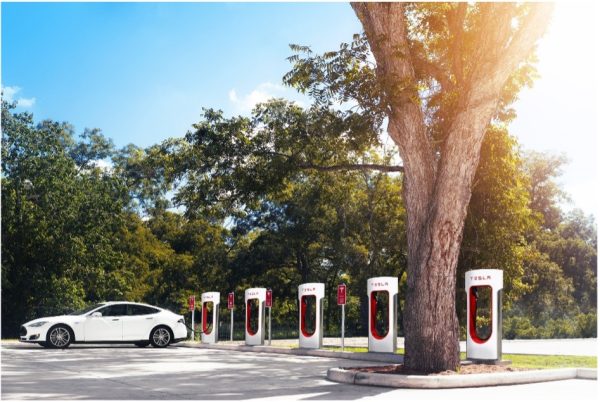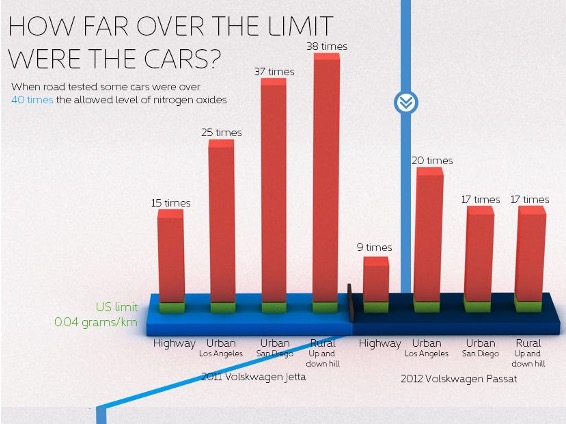Our PR Director, Michelle Smytheman, is passionate about helping emerging professionals in the communications industry and teaches at the University of the Sunshine Coast. As part of an assessment task this year, there have been some excellent blogs written by first-year students about emerging business trends. We are proud to share their work.
By Brody Smith
Do you ever feel the need to question if a brand is being honest with you? In the car industry especially, it’s common to just believe what you’re told and not dive deeper. When buying a new car all you really need to know is the price, fuel consumption, features, safety and sustainability. What if I told you some car brands do quite well to hide the specs. Think about it, has the amount of carbon emissions your car releases ever bounced around your mind? Trust me, after this you’ll want to follow my 5-step to-do-list to ensure you get what you’re paying for!
Environmental sustainability has become a focal point for companies and consumers in recent years. It’s a marketers daydream and nightmare all in one. Ensuring you’re transparent about the products you sell and state how sustainable they are is so important nowadays.  The concern of the state of the environment for future generations and the treatment of Earth has risen tremendously lately leaving companies no option but to become environmentally sustainable to remain in the game. We’ve seen it all. Simple changes to how products are packaged to Nike shoes with recycled polyester to electric cars. But how do we know if car brands are being honest to us about the environmental sustainability of their product? Are we as consumers only aware of the good but the bad and the ugly remains a mystery?
The concern of the state of the environment for future generations and the treatment of Earth has risen tremendously lately leaving companies no option but to become environmentally sustainable to remain in the game. We’ve seen it all. Simple changes to how products are packaged to Nike shoes with recycled polyester to electric cars. But how do we know if car brands are being honest to us about the environmental sustainability of their product? Are we as consumers only aware of the good but the bad and the ugly remains a mystery?
Tesla’s one brand that comes to mind. Claims to be eco-friendly and have a smaller carbon footprint. Tesla took the plunge at introducing a fully electric vehicle with an overall lifetime carbon emission rate of approximately 50% less than your typical petrol cars, good right? Yet they only rave on about no carbon emissions when the car is driven. I get that’s because it’s electric but what about the emissions released during the manufacturing process…
The so-called eco-friendly car brand produces the exact same amount of carbon emissions during manufacture than a standard fuel-reliant car. In fact, some studies have found that Tesla’s produces more carbon pollution than fuel cars due to the EV battery! So Tesla isn’t as eco-friendly as they claim. Rather than Tesla being forthcoming with consumers about all aspects of a car, they chose to be ugly, keep it under the wraps and continued to allow marketers to promote only half the product – the better half. That’s far from telling the truth, claiming to be a zero-emissions car is a straight up lie. I say, keep your hunk of junk and stand proud knowing you’re not adding to the already large amount of carbon pollution!
Did you know that in 2022 alone, the CO2 emission increased by 0.9% which equates to 321 million tonnes? That’s unbelievable!
As there is a growing number of consumers concerned for the current and future environment and the impact products have on earth. Being forthcoming and transparent is crucial for marketers. Providing all there is to know about a product is a basic standard. It’s understandable for cars to not be 100% eco-friendly, though including all specifications from before the car was built to when its driving is child’s play.
Volkswagen had a similar but greater issue to Tesla’s and experienced some attention – bad attention. Back in 2015, Volkswagen were found misleading consumers, falsely advertising and were handed a fine worth $125 million.
 Volkswagen faced a high demand for their diesel cars due to the cars’ supposed low emissions. What consumers weren’t aware of was that Volkswagen, one of the largest car manufacturers in the world, was cheating the emission tests. I know right, what’s the point of saying one thing and cheating your way there? The so-called low emissions cars were sold from 2011-2015 before the Environmental Protection Agency (EPA) identified a “defect device” fitted in the engine. Impacting a whooping 8.5 million cars across the world, the “defect device” was capable of detecting when the vehicle was being tested and adjusted its performance to improve the emissions result.
Volkswagen faced a high demand for their diesel cars due to the cars’ supposed low emissions. What consumers weren’t aware of was that Volkswagen, one of the largest car manufacturers in the world, was cheating the emission tests. I know right, what’s the point of saying one thing and cheating your way there? The so-called low emissions cars were sold from 2011-2015 before the Environmental Protection Agency (EPA) identified a “defect device” fitted in the engine. Impacting a whooping 8.5 million cars across the world, the “defect device” was capable of detecting when the vehicle was being tested and adjusted its performance to improve the emissions result.
But what will shock you even more is when the device wasn’t in test mode, the engines produced nitrogen oxide pollutants almost 40 times the standard of normal cars! This is disturbing. Consumers that purchased these cars chose to focus on sustainability and their small impact on the environment, but have been blind-sided. Volkswagen claimed to be environmentally sustainable with their low emission cars. They pretended to help the environment and be making a difference, a step in the ‘right’ direction if you will. But this isn’t being environmentally sustainable or transparent.
Now to avoid falling in this trap of being lied to, follow the list below… thank me later.
- Take what the salesmen told you with a grain of salt…
- Do your research! Dive deeper into the car brand and car model. Find expert information to reassure you.
- Look at the car reviews and advisory on the RACQ website
- For that extra peace of mind, look at the car reviews on the Carsales website
- Become a laggard! P.s it’s basically when you’re the last person to buy a product – you get all the real reviews and probably much cheaper.




